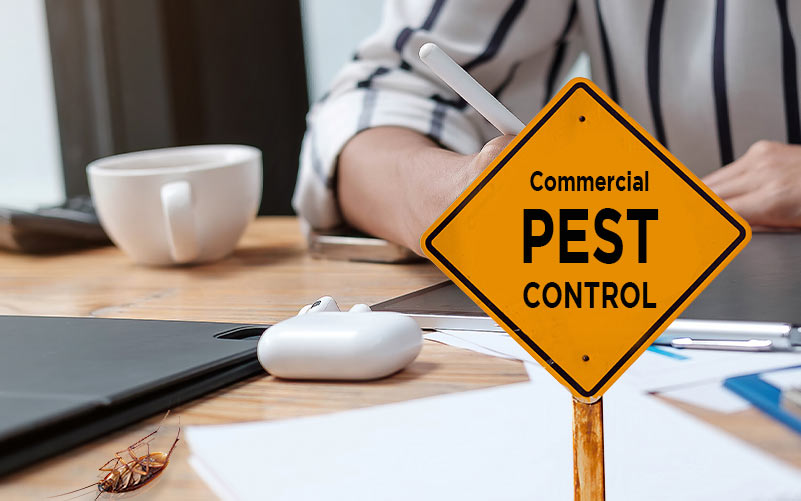Bed Bug Treatment Malfunction: Comparing Chemical Vs. Non-Chemical Solutions
In the realm of pest control, particularly when dealing with the consistent issue of bed bugs, the selection in between chemical and non-chemical therapy services can be a critical one. Both strategies offer distinct benefits and disadvantages, affecting factors such as performance, security factors to consider, and overall cost. By checking out the nuanced details of each approach, a clearer understanding of which path to pursue in addressing a bed pest problem can be acquired.
Efficiency of Chemical Treatments
Chemical therapies for bed bug invasions have been extensively recognized for their rapid and potent effectiveness in removing these insects. When considering the efficiency of chemical therapies, it is vital to recognize that they can supply a detailed and quick solution to a bed insect trouble.
Moreover, chemical therapies have the advantage of using recurring results, implying that they can remain to get rid of bed pests also after the initial application. This residual activity is particularly beneficial in combating any kind of potential re-infestations. In addition, the rapid action of chemical treatments can bring relief to people facing severe bed insect infestations, permitting them to gain back control of their living areas promptly.
Safety And Security Issues With Chemical Solutions
When using chemical solutions for bed bug therapy is guaranteeing the security of residents and the atmosphere,One crucial facet that requires careful consideration. While chemical treatments can be reliable in eradicating bed bugs, they may posture threats otherwise managed appropriately. One of the primary safety interest in chemical solutions is the possible harm they can create to human health and wellness. Direct exposure to specific chemicals used in bed bug treatments can bring about breathing problems, skin irritability, or various other unfavorable responses, specifically in people with pre-existing conditions or level of sensitivities. Additionally, improper application or dosage of chemical pesticides can lead to poisonous deposits remaining in the cured area, posturing long-term health dangers to passengers.
Moreover, the environmental impact of chemical options is another considerable consideration. Some pesticides utilized in bed insect therapies might be unsafe to advantageous insects, wild animals, and ecological communities if they seep right into the dirt or water supply. It is necessary to make use of chemical treatments deliberately, complying with safety and security standards, and considering much less poisonous options to alleviate these threats and ensure the efficient and safe monitoring of bed insect infestations.
Advantages of Non-Chemical Techniques
Taking into consideration the potential safety issues and ecological effect connected with chemical solutions for bed insect therapy, checking out non-chemical strategies provides a promising alternative with several unique benefits. Non-chemical approaches provide a more secure choice for houses, specifically those with kids, individuals, or pets conscious rough chemicals. These strategies get rid of the dangers of exposure to harmful compounds, decreasing the possibility for unfavorable wellness results. In addition, non-chemical treatments are eco-friendly, as they do not contribute to air or water contamination, making them a sustainable choice for pest control.
Additionally, non-chemical services can be reliable in targeting bed bugs, consisting of hard-to-reach locations where chemical treatments may not penetrate. Methods such as warm treatment, vacuuming, vapor cleaning, and bed mattress encasements provide complete eradication without making use of damaging chemicals. In addition, non-chemical techniques can be less turbulent, needing marginal preparation and permitting quicker reentry right into treated areas. Overall, opting for non-chemical bed insect therapy approaches not just focuses on security and environmental defense however also makes certain efficient and detailed bug control.
Limitations of Non-Chemical Treatments

Additionally, non-chemical treatments typically call for multiple applications click to read to achieve successful obliteration. This can be taxing and might not constantly guarantee complete removal of all bed pests and their eggs, particularly in hidden or hard-to-reach areas.
Moreover, the success of non-chemical therapies heavily depends on proper implementation and thoroughness, which can be challenging for people without specialist knowledge. Inadequate application of non-chemical methods may result in incomplete elimination, leading to relentless problems and the need for additional treatments.
As a result, while non-chemical therapies have their advantages, it is necessary to acknowledge these constraints and consider them when identifying one of the most reliable technique for taking care of bed pest infestations.
Cost Contrast: Chemical Vs. Non-Chemical Options
Given the limitations associated with non-chemical therapies, a vital facet to evaluate in the context of bed bug administration is the cost comparison between chemical and non-chemical options. In contrast, non-chemical therapies like heat treatment or steam can be much more expensive, with expenses varying from $1,000 to $6,000 for a whole home. While the initial cost of chemical treatments may seem reduced, numerous therapies might be needed to totally remove the problem, potentially boosting the general expense.
Conclusion

Thinking about the prospective security concerns and ecological impact linked with chemical solutions for bed bug treatment, discovering non-chemical techniques provides a promising option with numerous distinct benefits.Given the constraints connected with non-chemical therapies, a crucial aspect to review in the context of bed bug management is the cost comparison in check out this site between chemical and non-chemical options. In comparison, non-chemical treatments like warm treatment or heavy steam can be more costly, with expenses varying from $1,000 to $6,000 for a whole home. While the first price of chemical treatments might seem lower, multiple therapies might be required to completely eradicate the infestation, possibly raising the general expense.In final thought, when comparing chemical and non-chemical bed pest therapy options, it is essential to think about efficiency, safety and security, benefits, limitations, and expense.